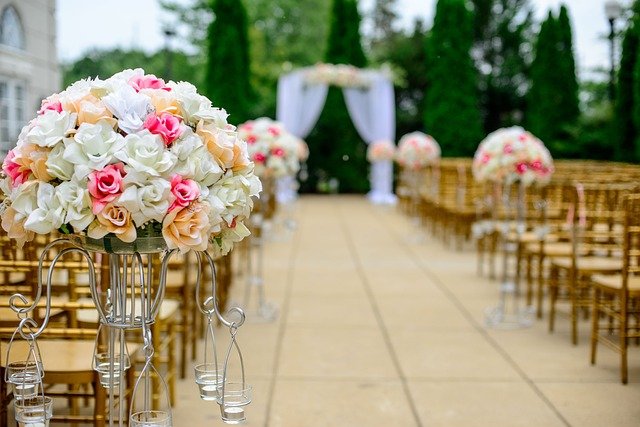Wedding Halls & Venues: Rooftop, Party and Celebration Spaces
Choosing a wedding hall or venue is about matching space, logistics, and atmosphere to the event you imagine. Whether you prefer a rooftop ceremony under the sky, an indoor reception for a large party, or a flexible hall suitable for a birthday celebration, practical details like capacity, catering options, accessibility, and local services will shape the final experience.

What makes a rooftop venue suitable for weddings?
Rooftop venues offer skyline views and an open-air feel that many couples appreciate, but they also bring specific considerations. Check structural capacity, available shelter in case of rain, heating or cooling options for comfort, and safe access for guests and vendors. Noise restrictions, elevator access for elderly or mobility-impaired guests, and permit requirements for amplified sound are common concerns. Ask about contingency plans and whether the venue provides basic lighting and power for bands or DJs so the rooftop can function smoothly from ceremony through party.
How should you plan a party layout in a venue?
A successful party layout balances flow, focal points, and service areas. Start by confirming the guest count and create zones: ceremony or main stage, dining or seating, dance floor, and vendor/service access. Consider sightlines from seating to the stage and speaker placement for even audio coverage. Allow space for servers and food stations, and plan emergency exits and restroom access. Temporary structures like marquees or a covered bar can add flexibility; coordinate with the venue about where these can be installed and any load limits they enforce.
How do venues support different celebration styles?
Venues vary in how adaptable they are to different celebration types. Some halls provide in-house catering, décor packages, and AV equipment, while others offer a blank canvas for outside vendors. Traditional wedding receptions, informal parties, and themed celebrations each need different setups: formal plated meals require kitchen capacity and staff, while buffet or food-truck options need outdoor access and utility hookups. Discuss noise curfews, vendor restrictions, furniture inventory, and whether the venue supplies coordinator support to help align the space with your intended atmosphere.
Can a wedding venue host a birthday event or reception?
Many wedding venues accommodate other events like birthday celebrations and anniversaries, but scale and style matter. For a milestone birthday or private party, confirm whether the venue allows different event formats, such as cocktail-style gatherings or family-style seating. Inquire about minimum and maximum guest counts, whether the venue offers specialized birthday packages, and how flexible the catering options are for custom menus. If the celebration includes performances or DJs, verify sound policies and any additional insurance requirements the venue may impose.
What role do local services play when booking a venue?
Local services—caterers, florists, AV technicians, and rental companies—are often central to realizing a wedding or party vision. Ask venues for preferred or recommended vendors, but also verify that outside vendors are welcome and what insurance or licensing they must carry. Accessibility to hotels, parking or shuttle options, and public transportation affects guest convenience; request details about drop-off areas and loading zones for vendors. When searching for a venue in your area, gather quotes from multiple local providers to compare availability, coordination support, and logistical compatibility.
What should you review in contracts and booking details?
Before confirming a booking, scrutinize the contract for deposit schedules, cancellation and rescheduling terms, overtime fees, and exact inclusions (tables, chairs, linens, cleanup). Confirm setup and teardown windows so vendors can plan reliably, and check for insurance or permit requirements—some venues require event insurance or licenses for alcohol service. Understand payment timelines and what triggers final guest count adjustments. Clear documentation of responsibilities reduces misunderstandings between organizers, the venue, and third-party vendors, helping the celebration proceed without last-minute surprises.
Conclusion
Selecting a wedding hall or venue involves practical checks as well as aesthetic choices: capacity and accessibility, vendor policies, contingency plans for rooftop or outdoor spaces, and clear contractual terms. By aligning the venue’s facilities with the type of party or celebration you want—whether a wedding ceremony, a lively birthday reception, or an elegant dinner—you can create an event environment that supports both the logistics and the intended mood.






